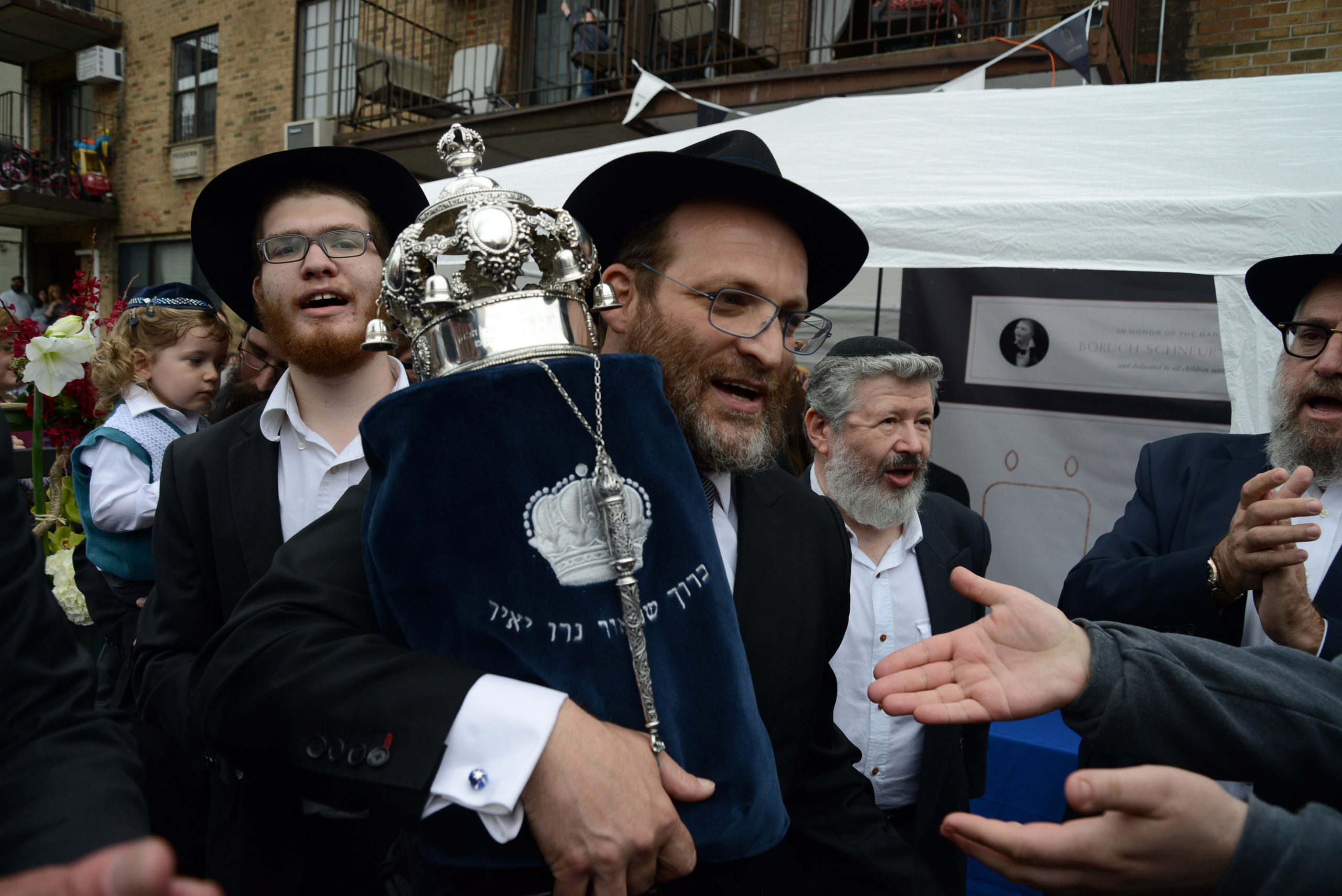
A grand event was held Sunday to celebrate the completion of a new Torah, donated to the Friendship Circle of Brooklyn by Dovi and Racheli Chaimsonof Crown Heights.
The Torah was dedicated in honor of the Bar Mitzvah of their son, Boruch Schneur, who is a member of the Friendship Circle of Brooklyn.
The celebration included the writing of the final letters of the Torah at the Chaimson residence, followed by a children’s program which included a rally and lively concert by singer Chaim Fogelman.
Hundreds of family, friends and community members joined for the joyous celebration, as the Torah was led through the streets of Crown Heights to the Friendship Circle at the Jewish Children’s Museum on Eastern Parkway.
“It was truly moving to see how not only the Friendship Circle community, but the community at large, came out together in support of our families and children with special needs, celebrating out special milestone together,” said Rabbi Berel Majesky, who directs the Friendship Circle of Brooklyn together with his wife Chani.
“As a child grows, each significant milestone is celebrated with joy and love. A Jewish child’s path is sprinkled with milestones, marking his or her journey to serving G-d and following His holy Torah. A boy’s journey begins at his Bris at the tender age of eight days, followed by an Upshernish at three, learning the Aleph Bais, a first Siddur, learning Chumash and continuing in holy Torah studies. Each achievement is a stepping stone towards the highlight of his Bar Mitzvah.
“The achievements of each child are the same, yet the journey is different for everyone. Born with medical challenges, Boruch Schneur ‘שי Chaimson started his journey almost 13 years ago. Boruch Schneur has reached this remarkable milestone of becoming a Bar Mitzvah,” Rabbi Majesky said.
In the letter below, the Rebbe stresses the importance and significance of involving all Jewish children, including those with special needs, with Torah and Mitzvos:
“On the other hand, if the child is involved in Jewish education and activities, and not in some general and peripheral way, but in a regular and tangible way, such as in the actual performance of Mitzvos, customs and traditions, it would give him a sense of belonging and attachment, and a firm anchorage to hold on to, whether consciously or subconsciously. Eventually even a subconscious feeling of inner security would pass into the conscious state, especially if the teacher will endeavor to cultivate and fortify this feeling.”

